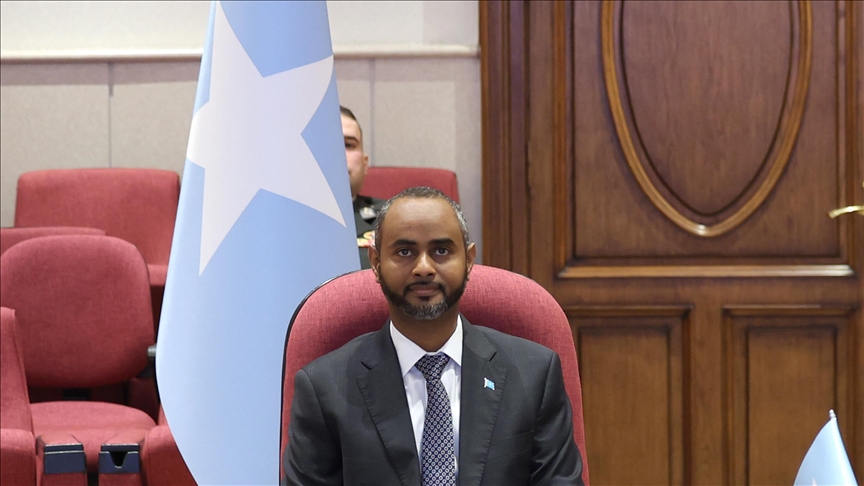ANTALYA, Türkiye
Somali Minister of Ports and Marine Transport Abdulkadir Mohamed Nur emphasized the strength of Türkiye-Somalia relations and the Antalya Diplomacy Forum’s (ADF) impact in reshaping diplomacy during the forum’s fourth edition at the NEST Congress Center.
He said the forum in coastal Belek district of Antalya has become an essential platform in a fractured world, encouraging inclusive and forward-thinking multilateralism under Turkish President Recep Tayyip Erdogan’s leadership.
“Conflict, climate change, food insecurity, and inequality no longer respect borders — they are now shared global challenges demanding shared responsibility,” he told Anadolu, the forum’s official global communication partner.
Nur pointed to the presence of Somali President Hassan Sheikh Mohamud at the forum as a sign of Somalia’s strong commitment to the event’s goals.
“It also underscores the strength of Somali-Turkish relations, built on shared values, mutual trust, and a commitment to building resilient and peaceful societies. The personal rapport and strategic alignment between our two presidents have laid the foundation for a partnership that reaches far beyond our two nations—offering a model of cooperation grounded in dignity, solidarity, and development,” he said.
He said this year’s theme, “Rebuilding Diplomacy in a Fractured World,” closely reflects Somalia’s history, explaining that the country has learned lasting peace comes from dialogue, trust, and inclusive governance rather than force.
“Somalia knows the power of diplomacy — because we have experienced the power of being heard, supported, and uplifted by partners like Türkiye,” he said.
He described the ADF as more than a diplomatic meeting, noting its inclusion of youth, academics, civil society, and business leaders. Somalia, he said, is ready to share its experience to help shape a fairer international system.
Türkiye-Somalia cooperation
“The Türkiye–Somalia relationship stands as one of the most enduring and exemplary partnerships on the African continent,” Nur said. He described the relationship as rooted in shared history, strengthened by trust, and guided by a joint vision of peace and regional leadership.
He highlighted President Erdogan’s 2011 visit to Mogadishu as a turning point that transformed the relationship from humanitarian support to a full partnership focused on state-building, security, economic resilience, and infrastructure.
Nur said the Defense and Economic Cooperation Framework Agreement signed on Feb. 8 raised bilateral ties to a strategic level, covering maritime security, counter-terrorism, and national defense.
He also pointed to oil and hydrocarbon exploration deals as key steps in Somalia’s energy independence efforts, describing Türkiye as a strategic investor and reliable partner.
Nur said these agreements represent more than economic plans — they reflect a vision for sustainable statehood.
“Türkiye and Somalia are not just allies. We are co-authors of a future defined by trust, ambition, and shared strength.”
He praised Türkiye’s support for Somalia’s port infrastructure, maritime training, and institutional development, calling them key to turning the country into a regional trade hub.
He added that maritime cooperation between the two countries goes back to the Ottoman period and reflects a deep-rooted connection.
“Somalia’s geostrategic position at the convergence of global trade routes makes our ports not only national assets but also international lifelines. Türkiye’s continued support in modernizing these gateways has empowered us to reimagine what is possible — for our economy, for our regional role, and for our people.”

